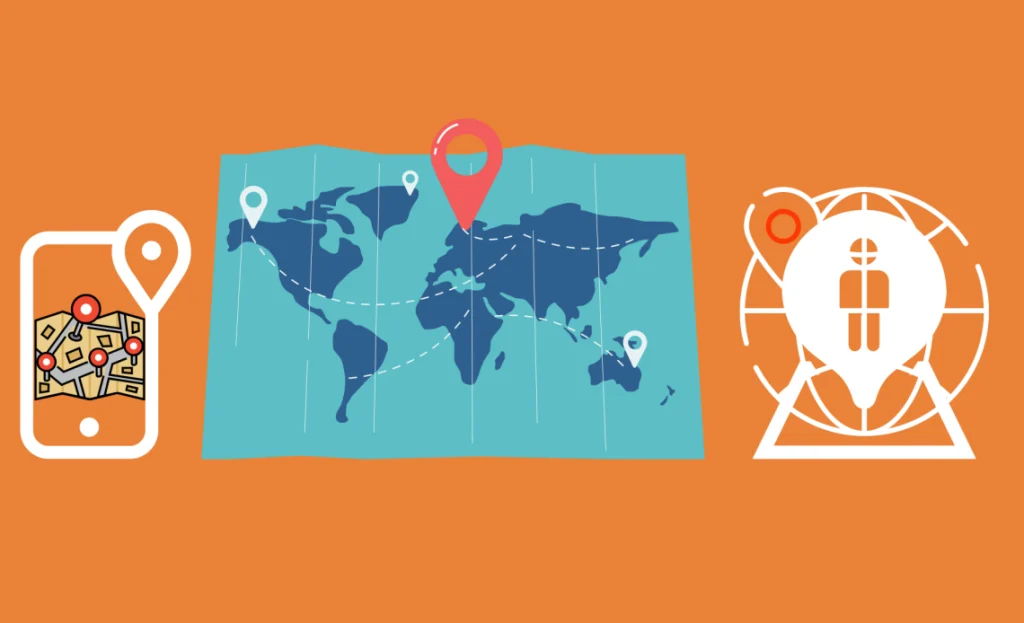This is where IP geolocation comes in; it allows companies to serve clients with relevant information. It could have the effect of attracting their attention, providing a local feel or translating key messages into a user’s language.
Moreover, these services are based on data from various sources that enhance their accuracy. The most important ones include regional internet registry (RIR/LIR) databases and public WhoIs database.
What is IP address?
It is a unique numeric label assigned to every device connected to the Internet that identifies it. ISPs allocate them during connection to their users.
This numerical address forms a part of the protocol system that enables computer networks to interact. Without it our computers would be making noise but no one would be able to perceive it.
Consequently, businesses use IP geolocation as a basis for understanding customers’ behavior and planning business strategies. In addition, they can deliver customized content and products based on this information.
Notwithstanding, this technology does not provide 100% accuracy since an IP address can be spoofed. Therefore, IP geolocation should not be used solely by businesses but supplemented with other sources of data. Additionally, only some fraction of total IPv4 routable space may be covered by databases used for IP geolocation because some IP addresses are reserved and out-of-use.
How does IP address geolocation work?
Whenever you connect any electronic device to the internet, it has its own unique internet protocol number called an IP address (IP). Whenever visitors log onto any website anywhere in the world they are identified through their internet protocol addresses which websites then use either application program interface (API) or database software using Geo- location technologies to point out visitor’s place.This includes country name , region name , city name latitude longitude .
The source of data determines how accurate the Geolocation is . Inaccuracies may arise in RIR- based DBs for instance due to spoofed ip Addresses .Regional Internet Registries (RIRs) are large institutions responsible for managing and allocating internet protocol (IP) addresses within their respective regions of the world.
Additional data sources consist of proxies, VPNs, and mobile devices. This would still introduce some inaccuracies because people move around in the city with their devices, while a proxy may have a different geolocation from one’s physical place. Website localization, content personalization, online fraud detection and many other applications are supported by reverse IP geolocation; however there are some limitations to this methodology.
What are the advantages of IP address geolocation?
One of the key benefits of IP address geolocation is how it enables companies to customize content and advertising campaigns based on user location. In turn, this improves user experience leading to higher conversion rates and increased customer loyalty.
Databases used by services that perform IP geolocation map IP addresses to geographical locations. Such databases are usually provided by sometimes RIRs (Regional Internet Registries), official organizations that manage and distribute Internet Protocol (IP) addresses in certain parts of the world. The information contained therein is updated occasionally but they can be inaccurate due to reasons like spoofed IP addresses or differences between location data from RIRs and other providers .
Some services also use BGP routing information to guess the geographical location of a device. This method can be more precise than mapping methods, but is not as precise as GPS. These techniques may also suffer from error resulting from things such as dissimilar naming conventions, telecom carrier network problems and latency measurements.
What are the disadvantages of IP address geolocation?
Because people are increasingly using their mobile devices for browsing, shopping and performing sensitive transactions, businesses need to know where their customers are located. An IP geolocation API can help a business determine the approximate geographic position of a device.
Knowing where users actually come from is useful in several ways for businesses; it allows them to personalize online content and offers by regions for instance. This improves user experience thus enhancing conversion rates while ensuring that cyber criminals are caught and dealt with accordingly.
However, there are some limitations associated with IP geolocation. Firstly, it’s important to select an up-to-date data source that gives quality information. Also, due to proxies and VPNs among others reasons IP geolocation may give inaccurate results. It can also be difficult to accurately geolocate mobile devices because they often have dynamic IP addresses and inconsistent naming conventions.






